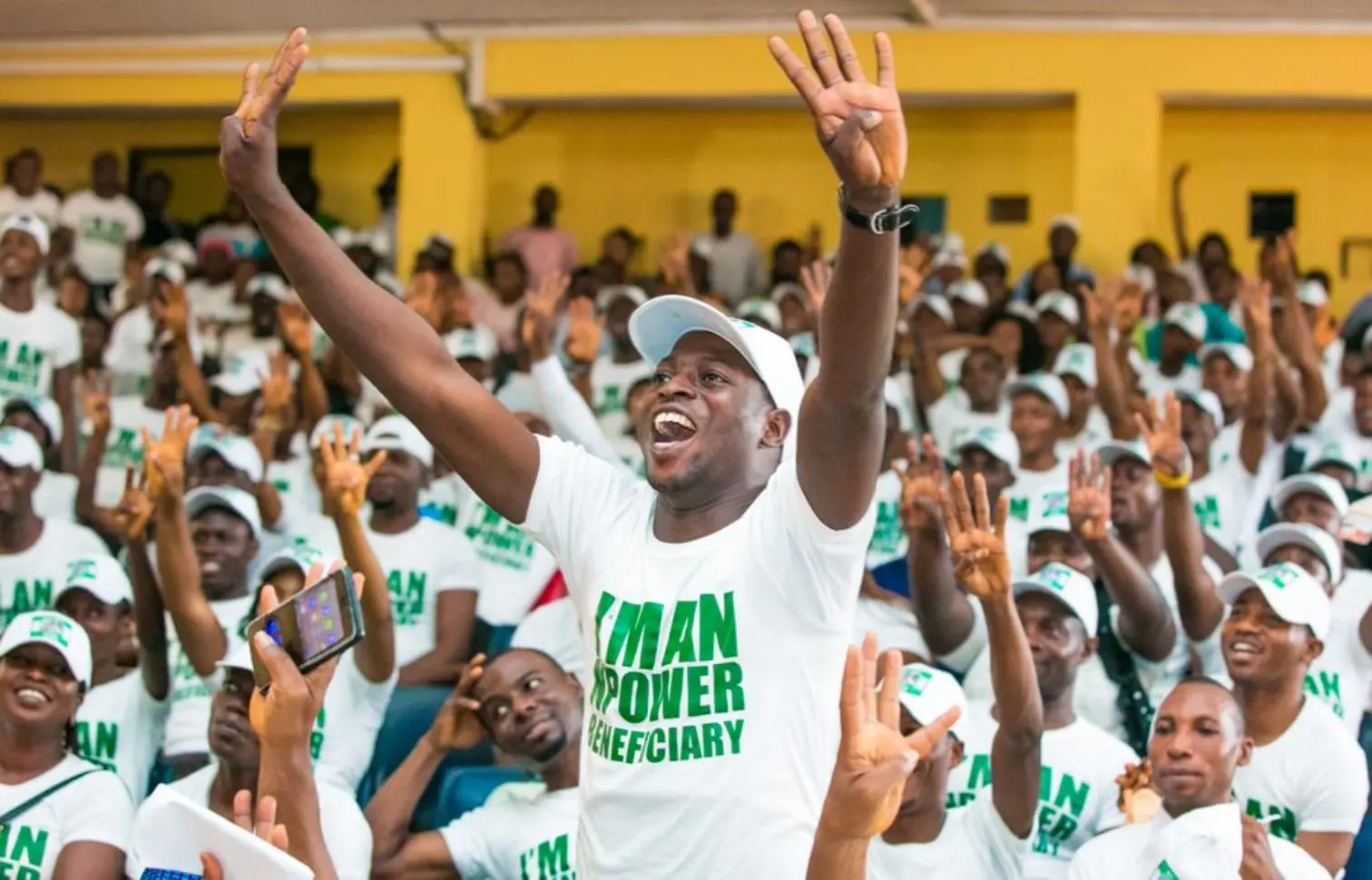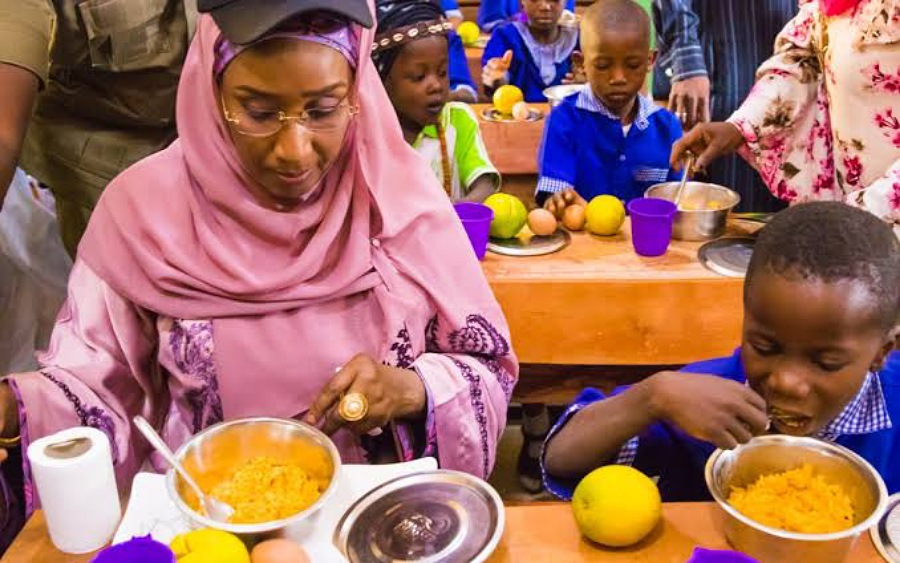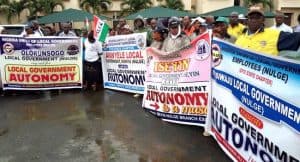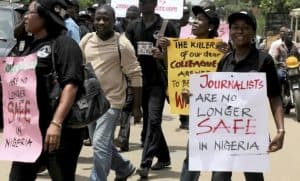
He worked very hard to succeed in his small-scale business, but the harder he tried, the tougher it turned. Yusuf Taiyelolu, a local hand-weaver in Kwara State, was alone in the depth of his sorrow each passing day. He kept his hope alive, praying and beaming search lights online for any social investment programme that supports young persons in the country.
When Yusuf learned about N-Power, a federal government social intervention scheme, in 2022, he kept himself abreast with every news coming out from the Ministry of Humanitarian Affairs and Poverty Alleviation. One evening, news about the application for N-Power popped up on his screen; he could not hold back the joy that sprinkled over his face. He put his energy into the application and later made it to the shortlist.
A glimmer of hope flickered after Yusuf was selected as a beneficiary of the N-Power scheme in 2022. He thought he could expand his business with the little stipend he hoped to earn from the national social investment programme.
He would wake up every morning heading to his place of primary assignment at the Government Day Secondary School in Kwara. However, after dedicating his time and energy into teaching the students for over three months, Yusuf’s hope was dashed; he earned nothing until March 2023 when the stipends for the months were paid in arrears.
The government intervention was supposed to address issues of youth unemployment and increase social development, but it almost cost Yusuf his business. He shares a similar story with other beneficiaries of the N-Power scheme at the time.

Launched in 2016 by the former President of Nigeria, Muhammadu Buhari, N-Power is a federal government social intervention scheme aimed at addressing youth unemployment challenges and increasing social development. Designed for citizens between the ages of 18 and 35, the modular programmes under N-Power was to ensure that participants learned or honed skills to find or create work.
Although the intervention was praised for effectiveness at some points, its unsustainability began to rear its ugly head. Particularly, the N-Power batch C stream 2 beneficiaries were owed over seven months stipends before the indefinite suspension of the programme last year by Nigeria’s President Bola Tinubu.
Charged with poverty alleviation, the humanitarian ministry seems to be creating more problems than solutions, as supposed beneficiaries of the N-Power scheme faced dire financial issues, after dedicating their time and ending up with almost nothing. Rather than providing social interventions to Nigerians, corruption and malfeasances have infested government parastatals in charge of several youths empowerment schemes.
For instance, the Economic and Financial Crimes Commission(EFCC) recently unmasked the alleged mismanagement of N44 billion in the name of the National Social Investment Programme Agency (NSIPA). In another instance, a whopping N37 billion social intervention fund disappeared under the leadership of Sadiya Umar-Farouq, the immediate past minister. Yet, another N585 million went missing under the watch of the suspended Minister of Humanitarian Affairs, Betta Edu. The anti-graft agency also recovered several billions from the current and past heads of the humanitarian ministry.
Like Yusuf, Ibrahim Olayemi, another beneficiary of the N-Power scheme expressed his disappointment over the social investment programme, saying the government intervention failed to serve its purpose.
Ibrahim said he is a furniture worker but during those times, he left his work and went to his place of primary assignment from 8 am to 2 pm every working day.
“I attended every class and performed better than full-time teachers,” he said. “The service affected me a lot because I had seen it as an opportunity to boost my business.”
Yusuf re-echoed Ibrahim’s lamentation, saying: “These people are wicked. If they had paid this money, I would have invested in my business. I was thinking they would make the whole payment last December. Unfortunately, they only paid us for that month. They already knew that they had been investigated; the eyes were already on them.”

In a bid to address the pressing economic issues facing the country, the government created the Special Public Works Program managed by the National Directorate of Employment. Piloted from February to April 2020 in eight states, it targets unemployed youths between 18 and 30 years of age, without any minimum educational requirement. Responding to the outbreak of COVID-19, the Special Public Works Program was extended to all 36 states of the federation and the Federal Capital Territory.
The scheme, designed to provide three months of temporary employment to 1,000 persons in each of the 774,000 local government areas, is said to be novel for targeting the unskilled. Also, the Social Investment Program (SIP) was introduced in 2016. Between then and 2020, the Government injected over one trillion naira into its activities involving hundreds of thousands of young Nigerians.
A N75 billion National Youth Investment Fund was also activated as part of the COVID-19 Economic Sustainability Plan to provide low-cost loans to businesses owned by young entrepreneurs. The initiative was another opportunity for young entrepreneurs to obtain low-cost funds of between N250,000 and N3 million to start or expand their businesses.
Then the Farmermoni, Tradermoni and Marketmoni loans. TraderMoni was initiated to provide zero-collateral soft loans to traders, artisans and farmers, to improve their standards of living by expanding their businesses.
An economic expert, Michael Dada who spoke to The Liberalist believed the government policies are not yielding the desired results.
“Sometimes the policies are good, but the implementation is faulty. It is selective and personalized,” he said. “Do they want to tell us that there are no competent economists who can help formulate and implement policies that will lead to job creation?
“We vote people into government only for them to become lords over us. People are dying silently. Many, especially youths are running [out of the country] because of frustrations.”
Dada said the government need not create jobs to tackle unemployment or distribute money to cure poverty, as doing it would be inadequate.
“For instance, under TraderMoni, the government gives N5000 each to beneficiaries. What magic can such an amount perform in bringing anyone out of poverty? There is no proof that such policies have lifted people out of poverty.
“Instead of such policies, we need a friendly economic atmosphere that can encourage citizens to work and make a profit. The government cannot provide jobs for everyone, but the government has to make the atmosphere conducive for private efforts to thrive.”








